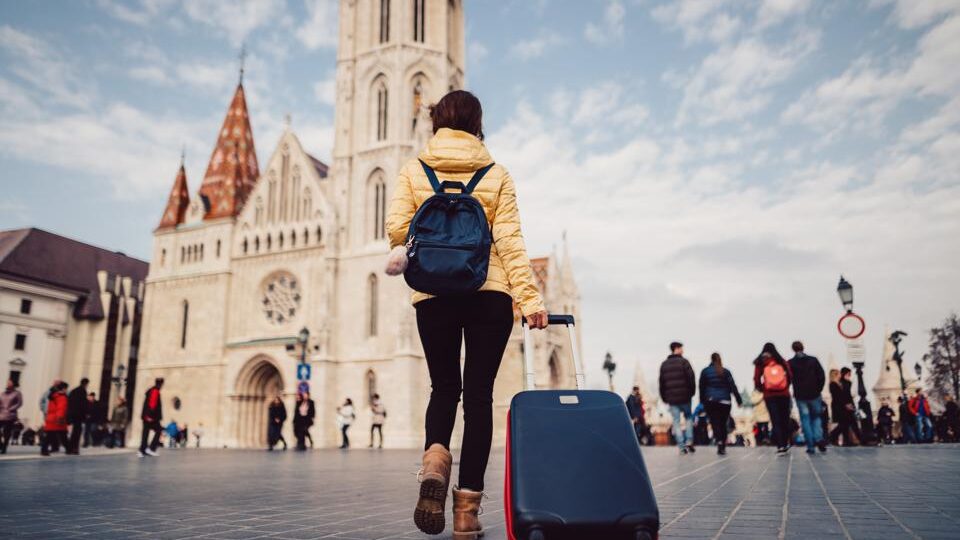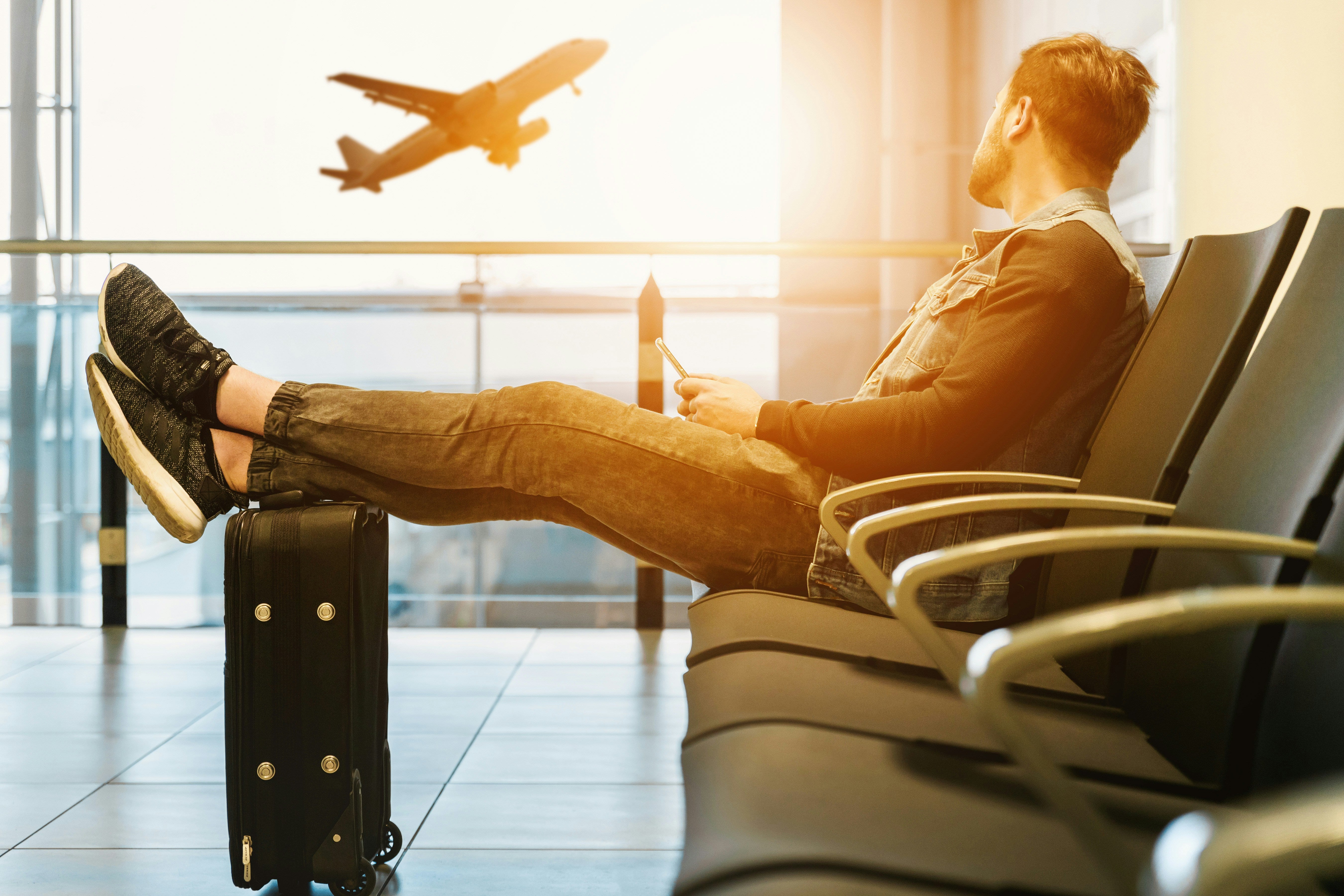Preparing for a study abroad program can be overwhelming without proper planning. A study abroad checklist helps students stay organized and ensures they have everything they need for a successful journey. Here’s a complete checklist covering essential tasks and items to ensure a smooth and successful adventure:
1. Passport and Visa
Ensure your passport is valid and has at least six months of validity left. Check that your visa is correct and covers the duration of your stay. Seek advice if unsure about visa requirements.

2. Flight Tickets
Research and book your flights early for the best deals. Websites like Skyscanner offer good options for international flights. If it's an indirect flight, check if you need a transit visa.
3. Accommodation Arrangement
Book accommodation early, based on your budget and preferences. University dormitories or shared housing are often budget-friendly.
4. Travel Currency and Prepaid Card
While most places tend to accept cards, it is always handy to have some cash in hand in local currency in various denominations, especially when you first land in a new country and the card may not work or may not be acceptable. Get a prepaid card in the local currency of the country before you leave. This will be useful till you open a new bank account in your country
5. International SIM and Roaming
You can buy an international SIM card from India through a number of online services, including Matrix, OneSimCard, GigSky, etc. You should also activate international roaming on your local SIM card as a backup. It can take a long time to open a bank account or get a new SIM in a foreign country, as they require a credit check and address proof. As a new student that can often take time.
6. Travel insurance and health insurance:
Purchase comprehensive travel insurance that includes medical coverage, trip cancellation, and lost luggage protection. Few countries offer you government-authorised students’ health insurance plans for which international students need to pay a surcharge or buy the healthcare policy. Below given are 3 ways by which this surcharge is paid as fees to insure a student against medical bills abroad:
- One of examples is country like UK, where you pay a healthcare surcharge as part of the visa application process
- Provincial or state-issued medical insurance, for which you can apply directly to the state body; e.g., Canada
- International students may opt for specific government-mandated medical insurance plan via registered health insurer in country like Australia
7. Original Documentation
Gather all required documents, including academic transcripts, letters of recommendation, and language proficiency certificates. Organize them in a folder or file for easy access during your trip. This is a key aspect of your study abroad checklist.
8. Copies of Important Documents
Make copies of your passport, visa, and other important documents, and keep them in a secure and accessible location, separate from the originals. Back up important documents and files in an online storage location (like Google Drive, Drop Box, or One Drive) in case of loss or theft. Documents like passports, tickets, and insurance copies should also be saved offline on your phone for easy access while travelling.
9. Medical Records and Medicines
Obtain copies of your medical records, including vaccination certificates and prescriptions. Research health care options in your destination country and ensure your insurance covers medical expenses abroad. Including medical records in your study abroad checklist will help you stay healthy and safe during your trip.
10. Medicines
If the student is undergoing any treatment, they must carry the prescribed medicine with them in enough quantity. Carry the doctor's prescription, too, in case you run out of doses. It would be best if you also take general medicines for headaches, colds, & coughs. Ensure that the brand you use is legal in the country you are moving to. A few medications that should be included in the packing list for Indian students going abroad:
- Paracetamol
- Anti biotics
- Antacids
- Painkillers
- Anti-allergies
- Antiseptic
- Bandages
- Cough syrup
- Dettol
11. Clothing
There is no specific clothing packing list for Indian students going abroad. However, the following are some of the essential items that you can keep in your luggage. One tip that Destinio will give is that do not overfill your luggage with bulky items like jackets, which are often available cheaper and better abroad:
- T-shirts/tops
- Two weeks' worth of socks and undergarments
- Shorts, pants, jeans, and skirts
- Swimsuits
- Pyjamas
- Sweaters and hoodies
- Two coats or jackets (one that is water-resistant and one for the cold weather)
- At least four outfits for formal occasions
- Shoes (trainers, dress shoes, comfortable walking shoes and flip-flops)
- Clothing for cold weather, such as mittens, gloves, hats, or scarves (if appropriate in the host country)
- A couple of sets of workout clothes
- A couple of belts and other accessories

12. Electronic Devices and Adapters
Bring your own laptop for studying and staying connected. Ensure you have the necessary adapters and chargers for international outlets. Other devices to carry include your phone, tablet, headphones, smart watches, etc. Including digital devices in your study abroad checklist will help you complete coursework and stay organized while abroad.
13. Essential Travel Accessories
Make sure that you have bought some essential travel accessories well in advance of your trip to make travel convenient:
- Waist Bag/ Sling Bag to keep your essentials close to you at all times
- Packing cubes for organized packing
- Neck Pillow
- Digital Luggage Scale
- Daypack
- Large and cabin-sized suitcases
- Luggage tags
- Luggage Locks
- Toiletry bags
- Travel adapters and Power Converters
- Neck pillow
- Foldable backpack
- Sunglasses
- Travel umbrella
- Diary/Journal
14. Toiletries
Some of the essentials you can carry in this segment:
- Hairbrush
- Hair comb
- Toothbrush
- Deodorant
- Make-up
- Contact lenses
- Tissues
- Razors (Carry them in your checked-in luggage)
- Mask
- Hand sanitizer
- Toothpaste
- Face wash
15. Snacks
While packaged Indian snacks are now readily available in Indian stores in major destinations like the UK and US, it may be good to take some home made dry food and snack items for the times when you miss the home food!
16. Connect Locally
The first few months in a foreign country can be very lonely, and it can help a lot if you can connect with an Indian family known through another friend or relative. Even if they are someone you do not know or have not met before, you will often be surprised by the connections you build with unknown people in a foreign country.
17. Language translator app
If you are going to a country where English is not the first language or if you are not proficient in English, then learn some main phrases in the local language and download a translator app for instant use.
18. Emergency Contact Details
Keep a list of emergency contacts both at home and in your destination country. Include local emergency services, embassy contacts, and family or friends. Store this information in a secure and easily accessible place.
19. Research Public Transport and Local Culture
Navigating public transport can sometimes be complicated, even in a place you are familiar with, so it is no wonder that international students can have difficulties with it. A bit of research beforehand can give you an important headstart and limit the amount of spontaneous guesswork you might need to do later on. Keep a printout of how you will travel to your first accommodation from the airport unless you have arranged for a pick-up by someone.
20. Notify Your Bank and Credit Card Companies
Let your bank and credit card companies know that you will be travelling and studying abroad so that they can flag your account for international transactions and avoid any potential fraud or security issues.
21. Take care of any loose ends at home
Take care of any bills or other responsibilities you have at home before you leave so that you can focus on your studies abroad.
22. Budget and Finance
Create a budget that includes tuition fees, accommodation, food, transportation, and leisure activities. Research currency exchange rates and banking options in your destination country. Consider using a prepaid travel card for convenience and security. Here are some ways to reduce your cost of studying abroad:
- Student Accommodation: Living expenses, especially accommodation costs, can significantly impact your budget. Look for affordable housing options such as university dormitories or shared accommodations with fellow students. Some universities even offer accommodation assistance to international students, which could help cut costs. Additionally, consider living a bit further from the city centre, as rent tends to be more affordable in the suburbs. An affordable accommodation option can massively save money.
- Research about part-time job options: Taking up a part-time job is an excellent way to earn some extra money while studying abroad. Many countries have provisions for international students to work part-time during their studies. These part-time jobs have decent pay, which can be used to manage your living expenses. Jobs on campus or in nearby businesses can provide not only financial support but also valuable work experience. However, make sure to balance work and academics, as your primary focus should be on your studies
- Student loans:You can consider student loans for international study from companies like Prodigy Finance, Mpower Financing, Credila, Avanse, and others, but be careful that you have not taken a loan that you cannot afford to repay, as it will have an impact on your credit history in the future.
- Use Student Discounts & Benefits: Being an international student often comes with perks in the form of discounts on various services and products. Always carry your student ID with you to take advantage of student discounts at restaurants, cinemas, museums, and public transportation. These discounts may seem small individually, but they can add up to significant savings over time.
- Commute Via Public Transport or On Foot: Transportation costs can pile up, especially if you rely on taxis or ride-sharing services. Instead, opt for public transport, which is generally cheaper and reliable in many countries. Additionally, consider walking or cycling for short distances, not only saving money but also promoting a healthier lifestyle.
- Get a travel pass: A lot of places around the world allow students to get a monthly or seasonal travel pass, which they can use to go on public transport whenever they would like. It is usually a better deal than constantly paying for individual tickets, especially if you use public transport often.
- Shop During Sales to Minimize Expenses: Retailers frequently offer sales and discounts on various items throughout the year. Be patient with your purchases and wait for sales seasons to buy essentials like clothing, electronics, and study materials. This approach can significantly reduce your overall expenses.
- Avoid Eating Out, Cook Your Meals: Eating out at restaurants can be a considerable drain on your finances. Have home-cooked meals and prepare your lunches for the day whenever possible. Cooking can be a fun experience, allowing you to explore new cuisines, cook healthier options, and save money simultaneously.
- Use Credit Cards Wisely: Credit cards can be a double-edged sword, offering convenience but also the temptation to overspend. If you decide to use a credit card, do so responsibly. Stick to a budget, pay off your balance in full each month, and choose cards with benefits like cashback or travel rewards that align with your needs.
23. Avoid Packing Certain Items
When travelling abroad to study, it's important to be mindful of what you bring with you to avoid potential legal or security issues, as well as to ensure that you are prepared for your academic program. You have to be vigilant of what items you add to your packing list for Indian students going abroad. Here are some items that you should not carry while travelling abroad:
- Certain plant/animal products: Some countries have laws that restrict the import of certain plant products, such as seeds, cuttings, or live plants. Some countries also restrict bringing milk based products like ghee and butter.
- Large or expensive electronics: While it may be tempting to bring expensive electronics, such as laptops or cameras, with you, they can be tempting targets for theft and can be difficult to replace in a foreign country.
- Excessive amounts of cash or expensive jewelry: Carrying large amounts of cash/ jewelry can make you a target for theft, and it may be difficult to exchange or transfer funds while abroad.
- Anything that might be considered a weapon
- Pirated goods or movies
- Illegal drugs: Needless to say, possession of illegal drugs is a serious offense in most countries and can result in severe penalties, including imprisonment.

In conclusion, it is essential to have a study abroad checklist in order to stay organised and make sure that you do not miss any last-minute details. It makes sure that you have a check on all the study abroad essentials and have not missed anything while you are doing your student packing. If you have a study abroad checklist that includes everything from your packing list for Indian students going abroad to your visa and passport, you are definitely going to have a smooth and stress-free experience.





Leave a comment
This site is protected by hCaptcha and the hCaptcha Privacy Policy and Terms of Service apply.